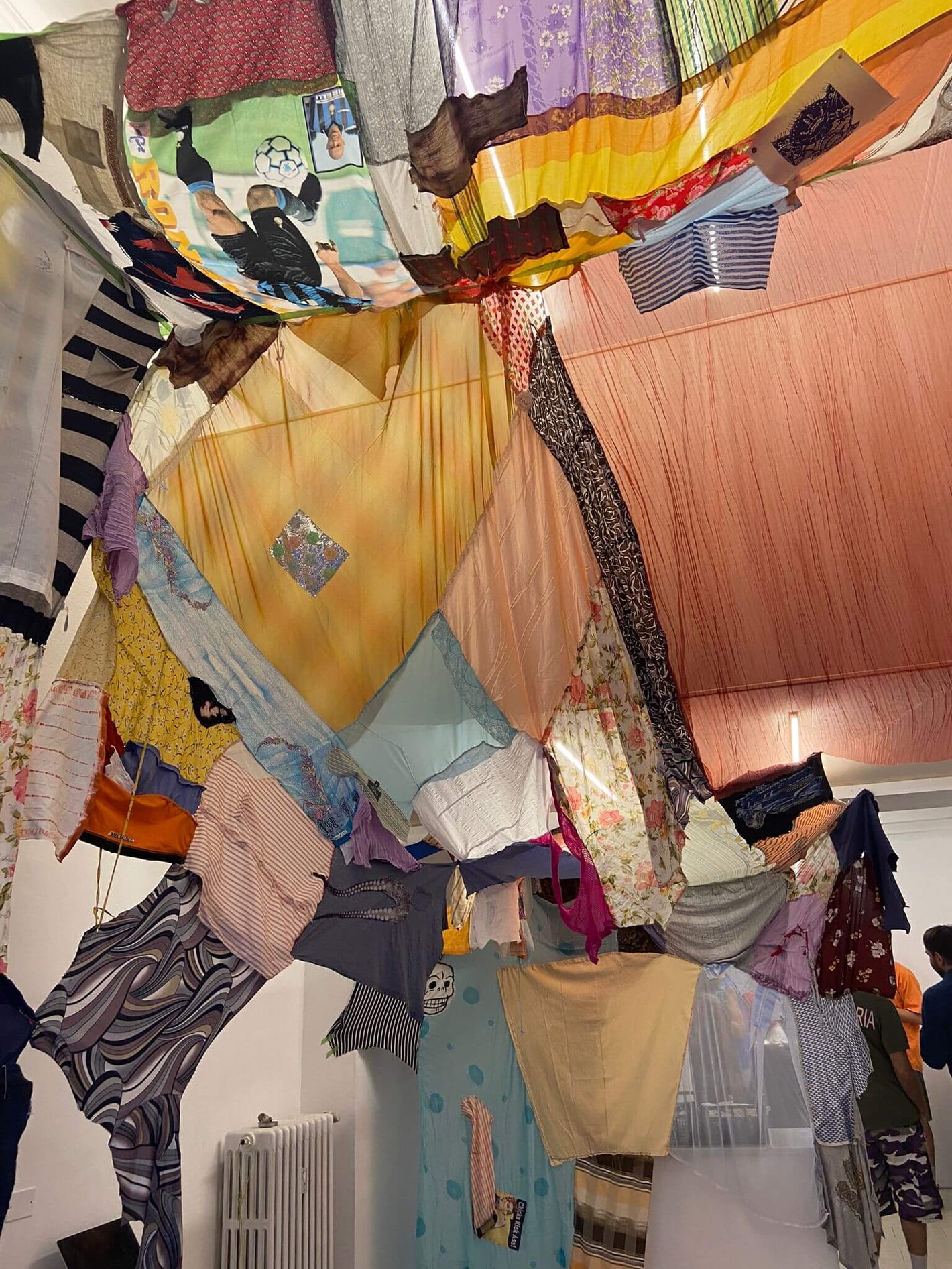IT_S FASHION BABY @SPBH SPACE - 2023
One of the challenges faced by fashion designer Giuditta Tanzi, founder of Garbage Core, is to ensure that her garments are replicable. However, since each one is created from second-hand clothes, waste products, and upcycled materials, it is nearly impossible to make identical items. While you can replicate the design, you cannot copy the exact physical details. Which makes Garbage Core garments unique.
While dominant groups push for the deregulation of global markets in favour of mass production, certain companies and initiatives, like Garbage Core, are advocating upcycling as a production model, and pushing for the respect for existing resources and the environment to become a priority. This, it is said, could provide a new model of development, based on more democratic societies and more responsible citizenship.
This renewal of citizenship is founded in the idea that the only non-replicable ‘product’ in our society, one with immeasurable value, is human relationships. Often underestimated in their performative capacity, relationships may appear replicable in form but are not in substance. Unique dynamics always determine them, making them an added value that allows for the pursuit of something different.
We are experiencing what philosophy and politics professor Nancy Fraser refers to as a ‘crisis of care’, in which the labour that builds the foundations of society is undervalued, often even unrecognized. This crisis mirrors the treatment of natural resources in capitalist societies: endless reservoirs exploited to breaking point from which we can grab whatever we please. Yet care is fundamental to the creation and maintenance of personal and social bonds that, in turn, enable institutions to function. Care is needed to raise children, protect diversity and support vulnerable individuals. It ensures the well-being of people, their education, and housing. Care is the bedrock of culture, politics, economics: an embodied practice as well as a normative and moral framework.
This realization served as the starting point for curators Giuditta Tanzi and Federico Bardelli who, as part of the It’s Fashion, Baby! programme, envisaged three days of collective sewing to create the piece that occupies SPBH Space. While assembling pieces of fabric together, the participants indirectly reflected on social bonds and on our ability to imagine a collective future that surpasses the possibilities – not too enticing – of the present.
Together, we all proved that renewal and vitality can be rediscovered through collective work toward a common goal, while challenging the neoliberal consumer culture that threatens relationships. Within the small group that grew and transformed each day, the subversive potential of being together and devoting one’s time to a task was constantly unfolding.


















